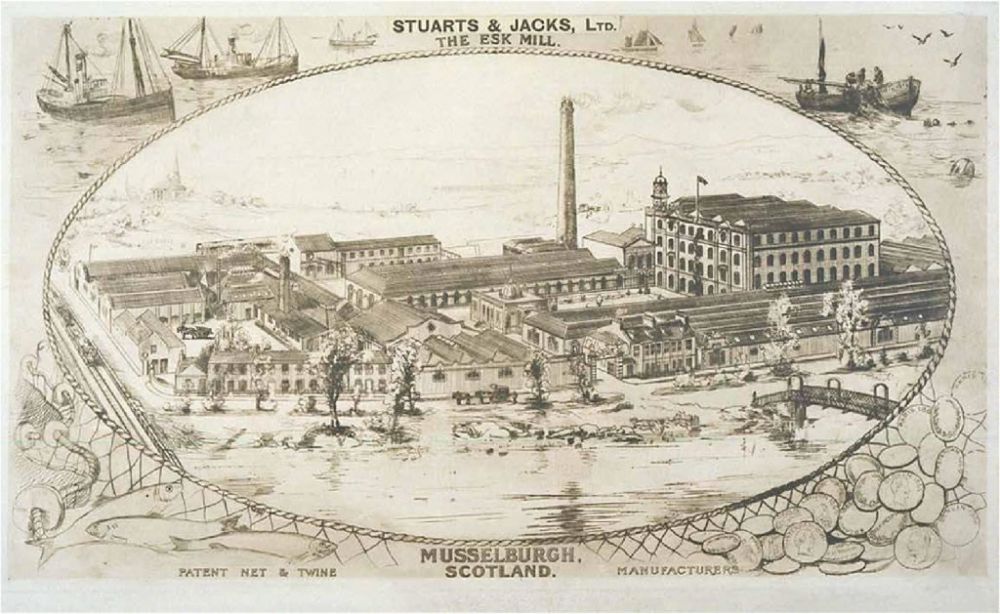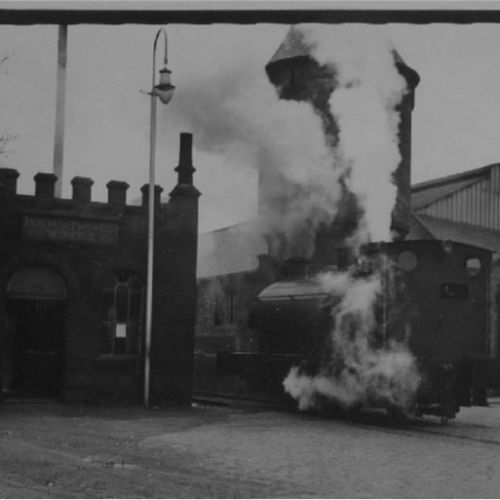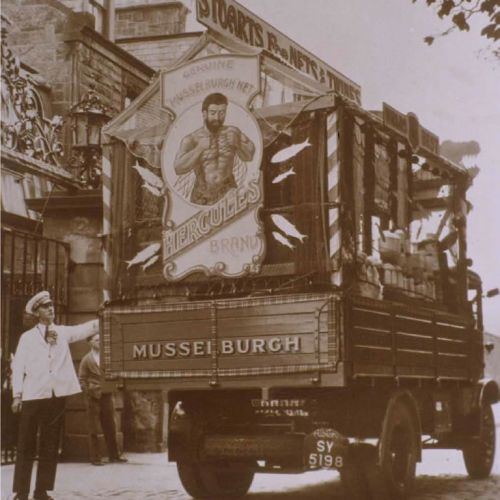heritage
Colonel James Paterson, a local to Musselburgh, invented and patented in 1812 the first machine capable of tying knots for the manufacture of fishing nets. When he died his company was bought, along with the patents for the knot-tying machines, by J. W. Stuart who established a new factory for the manufacture of fishing nets on the banks of the River Esk.
Messrs. J. W. Stuart expanded the business into a world leader within the fishing net industry, with sales and repair facilities in North America, Europe and Australia. At its height Stuart’s mills employed over 800 people in cotton processing and rope manufacturing. The mill played a major part in the local economy, and dominated the fishing net manufacturing industry for decades. Throughout the world, ‘Scotch Weave Nets’ became the generic name for machine produced nets. The Mill’s domination of the market faltered when newer man-made materials were introduced, namely nylon and terylene (Dacron). Their late adoption of the stronger and cheaper materials handed their competitors a considerable advantage and Esk Net Mills slowly declined.

The company and with it the factory eventually closed in 1979. A new company, which set up nearby assembling nets from synthetic materials, bought the name J. W. Stuart, because of the reputation associated with it. The factory complex went through various owners and sub divisions, falling further into disrepair, until the core ‘Victorian’ site was gradually re-assembled by Malcolm Gillies in the 1980’s and the conversion and restoration into what is now called Eskmills began.

